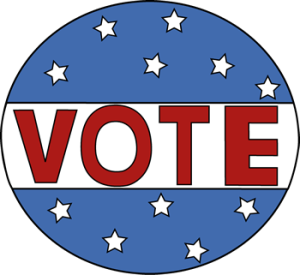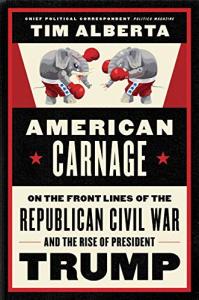
Political signs and the end of the world in 2024. Too much? How about this: Do you post political signs, flags, or banners in your yard? How about bumper stickers? If so, why? From my perspective, it makes no sense whatsoever. In a country where each citizen has the right to cast a vote in privacy, why would you want engage in “yard wars?” What good does it do? Are there really people who drive by your home and after seeing your yard sign decide their political candidate? I wouldn’t think so but it apparently does. Also, why is politics so present in churches?
We seem to have lost civil political discourse
I realize that it is a long-held tradition, but to what end? It seems to me that all it does is make people avoid you or confront you. Hardly ever, can voters discuss issues or candidates in a casual way. Somehow, the slander and hatred exhibited by politicians themselves seems to spill over onto the public. Remember the physical encounters in Congress last fall?
Remember this from the November 2023?
“First there was former House Speaker Kevin McCarthy apparently throwing a sharp elbow into Rep. Tim Burchett just weeks after Burchett voted to oust McCarthy from the speakership. Burchett accused McCarthy of landing a “clean shot to the kidney,” though McCarthy denied the allegations, blaming any contact on the “tight hallway.”
Mullin VS O’Brien
Then MMA-fighter-turned-Senator Markwayne Mullin readied himself for a brawl with Teamsters President Sean O’Brien in the middle of a Senate hearing. The two have previously bickered in the Capitol and online, but this time Mullin urged the labor leader to “stand your butt up” and finish their argument without using their words — even beginning to remove his wedding ring until Sen. Bernie Sanders stepped in to head off the fight”(Why Republicans Are on the Verge of Fistfights. By KELLY GARRITY, 11/15/2023, Politico).
Who Can Forget January 6, 2021?
Is it really too much to ask, “Political signs and the end of the world?” Who can forget the violent insurrection of January 6, 2021? The storming of the Capitol building, the hanging gallow for Vice President Mike Pence, and the aggression toward law enforcement. As painful (and shameful) as those memories are, political violence is nothing new. This Wikipedia entry lists the known accounts of legislative violence in a laundry list of nations with the United States owning 13 entries!

Friend or Foe?
What baffles me are the hostilities demonstrated by some of my Christian friends. Tim Alberta, now a writer for The Atlantic, went across America to churches, church sponsored rallies, Liberty University, and 1 on 1 interviews with pastors as well as politicians. In it, he wrote about the discouragement and disillusion felt by pastors and church members alike, sometimes to the point of church splits and lost friendships. Much of it is due to 3 similar yet distinct, “Christian” movements that have influenced the discourse between religion and politics.
3 Christian Political Ideologies
1) Christian Reconstructionism
- “Reconstructionism is a theology that arose out of conservative Presbyterianism (Reformed and Orthodox), which proposes that contemporary application of the laws of Old Testament Israel, or ‘Biblical Law,’ is the basis for reconstructing society toward the Kingdom of God on earth.
- “Reconstructionism argues that the Bible is to be the governing text for all areas of life–such as government, education, law, and the arts, not merely ‘social’ or ‘moral’ issues like pornography, homosexuality, and abortion. Reconstructionists have formulated a “Biblical world view” and ‘Biblical principles’ by which to examine contemporary matters.” ( “Christian Reconstructionism – Theocratic Dominionism Gains Influence,” March 1994, Frederick Clarkson, Political Research Associates).
2) The 7 Mountains Mandate
The website The7Mountains.com clearly states the mandate’s purpose.
- ” There are 7 main spheres that influence society, all other influences are contained within these, and, as God is giving greater revelation in these times, we are seeing His strategy more clearly. The Promised Land, which Joshua was to occupy, had seven nations already in control that needed to be removed so that the Israelites could possess and occupy the land. Deuteronomy 7:1(GNB)
- “‘The LORD your God will bring you into the land that you are going to occupy, and he will drive many nations out of it. As you advance, he will drive out seven nations larger and more powerful than you: the Hittites, the Girgashites, the Amorites, the Canaanites, the Perizzites, the Hivites, and the Jebusites.’
- “Each mountain relates to a nation, as mentioned in Deuteronomy, and knowing who these nations are and what they represent reveals clues as to the ruling spiritual forces. Each mountain has controlling spirits assigned to it. Ephesians 6:12 (GNB)
- “‘For we are not fighting against human beings but against the wicked spiritual forces in the heavenly world, the rulers, authorities, and cosmic powers of this dark age.’
- “As our battles are not against people, but against spiritual powers, it is wisdom to know the character of the enemy. Ruling powers and spirits always affect the thought life of those under their geographical sphere. Looking at the mountains individually will enable us to have a better understanding of its importance, its effect and the ruling spirits. As we are going to take territory on these mountains this information becomes significant.”
3) Christian Nationalism
“Generally, religious scholars, sociologists and others who study Christian nationalism describe it as a belief that the United States is a country defined by Christianity. In practice, this means:
-
- The government should take steps to keep the country’s Christian roots and identity intact.
- The government should advocate Christian values and pass laws and enact policies that reflect those values.
- The separation of church and state is not a formal law that should be followed.
- God’s plan is for the U.S. to be a successful nation based in Christian ideals.” (“What is Christian Nationalism? The Complete Guide, Scott Leadingham, www.TheFreedonForum.Org).
Dominoionism: 3 in 1
I’m not referring to the Holy Trinity. Instead, I mean that all 3 of the aforementioned Christian political ideologies are basically forms of Dominionism. The November 4, 2022 by Frederick Clarkson titled, “101:Dominionism” states the 3 main features of Dominionism.
- Dominionism can be summarized as the theocratic idea that Christians are called by God to exercise dominion over every aspect of society by taking control of political and cultural institutions: for example, over the role of government, the form and content of public education, and eliminating rights related to bodily autonomy. It envisions a very different society than one defined by democratic aspirations and equality for all people.
- Dominionism is the key element of contemporary notions of Christian nationalism—the belief that the U.S. once was, and should once again be, a Christian nation. This narrative denies the Enlightenment roots of American constitutional democracy. Dominionism is the underlying ideology that gives an agenda to Christian nationalism.
- Dominionism promotes religious supremacy, insofar as it does not respect the equality of other religions or even other versions of Christianity. Dominionism also promotes theocratic visions of governance, insofar as it supports the idea that the Ten Commandments, or “biblical law,” should be the foundation of American law and that the U.S. Constitution should be seen as a vehicle for implementing biblical principles.
The Original Question
Back to my initial question: Do you post political signs, flags, or banners in your yard or on your house? How about bumper stickers? If so, why? Furthermore, do you really believe that America is a Christian nation? If so, doesn’t that infer that America belongs to God? If America belongs to God, isn’t He able to take care of America? Do political signs signal the end of the world? Hardly.

…I find it curious that Dominionists have such disparate beliefs regarding the future of the Church. They tend to espouse either Reformed Christianity or they are part of the New Apostolic Reformation. Doctrinally, adherents of these 2 theological ideologies are at opposite ends of the spectrum. However, with regard to the future of the Church, they share Dominionist ideology. So, in the end will they share dominion of the earth, or will there be a clear winner? Finally, will they put signs on their lawns?


















